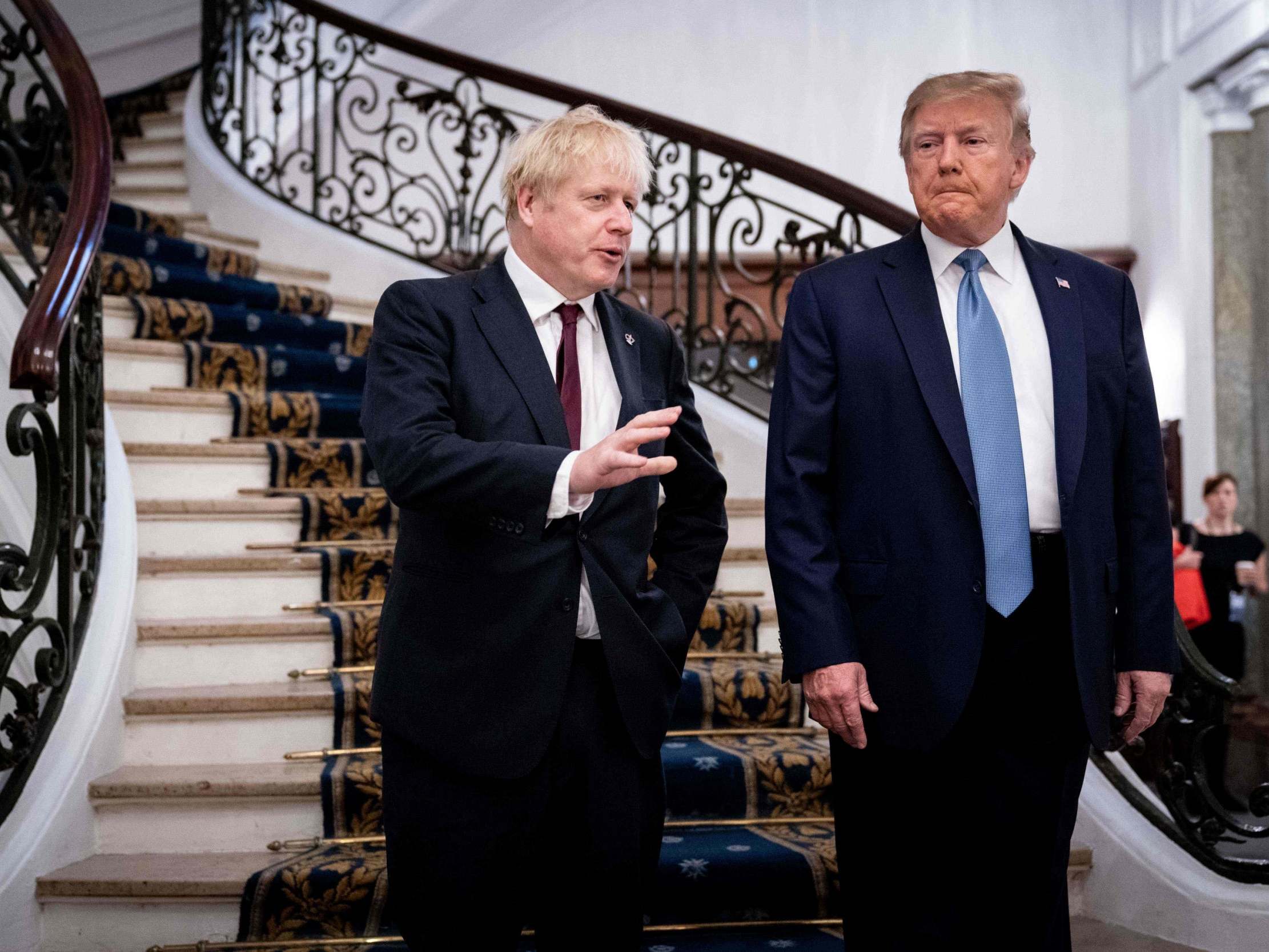Donald Trump and Boris Johnson have a special relationship: They were both radicalised by privilege
It’s hard to imagine what repeatedly failing upwards can do to the temperament of someone already born into privilege, where actions are entirely detached from consequence, says Richard Hall

Britain and the US have a habit of politically aligning every now and then. Maybe it’s the special relationship, the blind leading the blind, or something in our shared history.
Ronald Reagan and Margaret Thatcher were described as “political soulmates”. Together they oversaw a dramatic realignment of their respective economies, the effects of which are still felt to this day.
Tony Blair and George W Bush forged a close friendship over many windy walks at Camp David, which bonded both countries together in the rush to war in Iraq.
Although Boris Johnson and Donald Trump could never be described as ideological fellow travellers or even close allies, both are taking their countries down the same road again.
Acting almost in parallel, they are testing the limits of democratic institutions and norms in a way that they haven’t been tested for some time.
Even before the Democrats launched an impeachment inquiry against him, President Trump frequently attacked judges and the judicial process when they have frustrated his plans. In the aftermath of the UK Supreme Court’s ruling on Johnson’s proroguing of parliament, the prime minister did the same, calling the highest court in the land “wrong” in its judgment and threatening “consequences”.
Both too have raised the spectre of political violence should they be prevented from carrying out their mission. On Monday, Trump warned of the potential for a civil war if he was impeached. In turn, Johnson’s government has repeatedly suggested that the UK would witness violence on the streets if Brexit wasn’t delivered.
This kind of talk is more common to the Middle East than to Washington and London. And yet here it has arrived at the same time in both places.
So what binds the leaders of the US and Britain today, if not a shared ideology?
The answer may be that both men have been shaped, radicalised even, by a life of immense privilege. We often talk about the radicalising effects of poverty, but rarely consider how a gilded life can shape a person’s actions and their view of the world.
Neither Johnson nor Trump has ever paid for their failures and misdeeds in the way most people do. Career failures, bankrupted businesses, racism, lies, accusations of sexual assault and corruption – none of it has had any lasting consequence on their rise to the top.
It’s hard to imagine what repeatedly failing upwards can do to the temperament of someone already born into privilege – where actions are entirely detached from consequence. Surely it is easier to break the rules if they don’t apply to you?
It is those famous words that could have come from either of them, but which are attributed to an unguarded Mr Trump, that explains them best: “When you’re a star, they let you do it.”
Yours,
Richard Hall
Middle East correspondent
Join our commenting forum
Join thought-provoking conversations, follow other Independent readers and see their replies
Comments